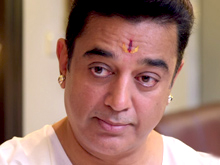Paris, Jan 24: Rahul Mishra and Imane Ayissi made history on Thursday by becoming the first Indian and black African designers to show their clothes on the elite Paris haute couture catwalk.
Only a little more than a dozen of the world's most prestigious luxury labels -- including Dior, Chanel and Givenchy -- have a right to call their clothes haute couture.
All the clothes must be handmade -- and go on to sell for tens of thousands of euros (dollars) to some of the richest and most famous women in the world.
Mishra, an advocate of ethical "slow fashion" who blames mechanisation for much of the world's ills, said "it felt amazing and very surreal to be the first Indian to be chosen." "They see a great future for us -- which will make us push ourselves even harder," the 40-year-old told AFP after his debut show was cheered by fashionistas.
Both Mishra and Cameroon-born Ayissi, 51, are champions of traditional fabrics and techniques from their homelands and are famous for their classy lines.
Ayissi said his selection was "immense" both for Africa and himself.
"I am so proud that I can show my work and showcase real African fabrics and African heritage," he told AFP backstage as celebrities, including the chic head of Unesco, Audrey Azoulay, congratulated him.
Mishra broke through on the Paris ready-to-wear scene after winning the International Woolmark Prize in 2014, the top award that also launched the careers of such greats as Karl Lagerfeld and Yves Saint Laurent.
The purity of his often white creations with their detailed but understated embroidery has won him many fans, including Vogue's legendary critic Suzy Menkes.
The doyenne of fashion's front row called him an Indian "national treasure".
But this time, Mishra turned up the colour palette somewhat with dresses that subtly evoked the jungle paradises and pristine underwater world off the Maldives he worries that one day we might lose.
Appalled by the smoke and pollution that meant he had to keep his four-year-old daughter indoors in Delhi for nearly 20 days in November, Mishra said he imagined a "pure virginal and untamed planet... with ecosystems crafted out of embroidered flora and fauna".
"I am very emotional about it. Sometimes it makes me cry. All our children should be growing up in a better world," he added.
"When I take Aarna (his daughter) to the foothills of the Himalayas and the sky turns blue, she is so happy.
"Once, when she saw the River Ganges, she said: 'Can you please clean it for us so can go for a swim?'"
Mishra said he was reducing the quantity of clothes he was producing while at the same time increasing their quality, with humming birds, koalas and other animals hidden in the hundreds of hand worked embroidered leaves and flowers of his "jungle dresses".
The designer has won ethical and sustainability awards for his work supporting local crafts people in rural India.
"My objective is to create jobs which help people in their own villages," Mishra said.
"If villages are stronger, you will have a stronger country, a stronger nation, and a stronger world," he added.
Ayissi takes a similar stand, refusing to use wax prints popular in West Africa which he dismisses as "colonial".
Dutch mills flooded Africa with cotton printed with colourful patterns borrowed from Indonesian batik in the 19th century, and still dominate the market.
"When we talk about African fashion, it's always wax, which is a real pity," he told AFP, "because it's killing our own African heritage."
Ayissi, a former dancer who worked with singers such as Sting and Seal, told AFP he wanted to open up "a new path for Africa" and find an "alternative way of doing luxury fashion".
He has gone back to using prestigious local materials, like the strip fabric kente woven by the Akan people of Ghana and the Ivory Coast, which was originally worn only by nobles.
The son of an undefeated African boxing champ and a former Miss Cameroon, he also uses appliqued techniques from Benin and Ghana.
Haute couture shows only take place in Paris and the criteria to enter and remain in fashion's elite club are strictly enforced by French law.






Comments
Add new comment